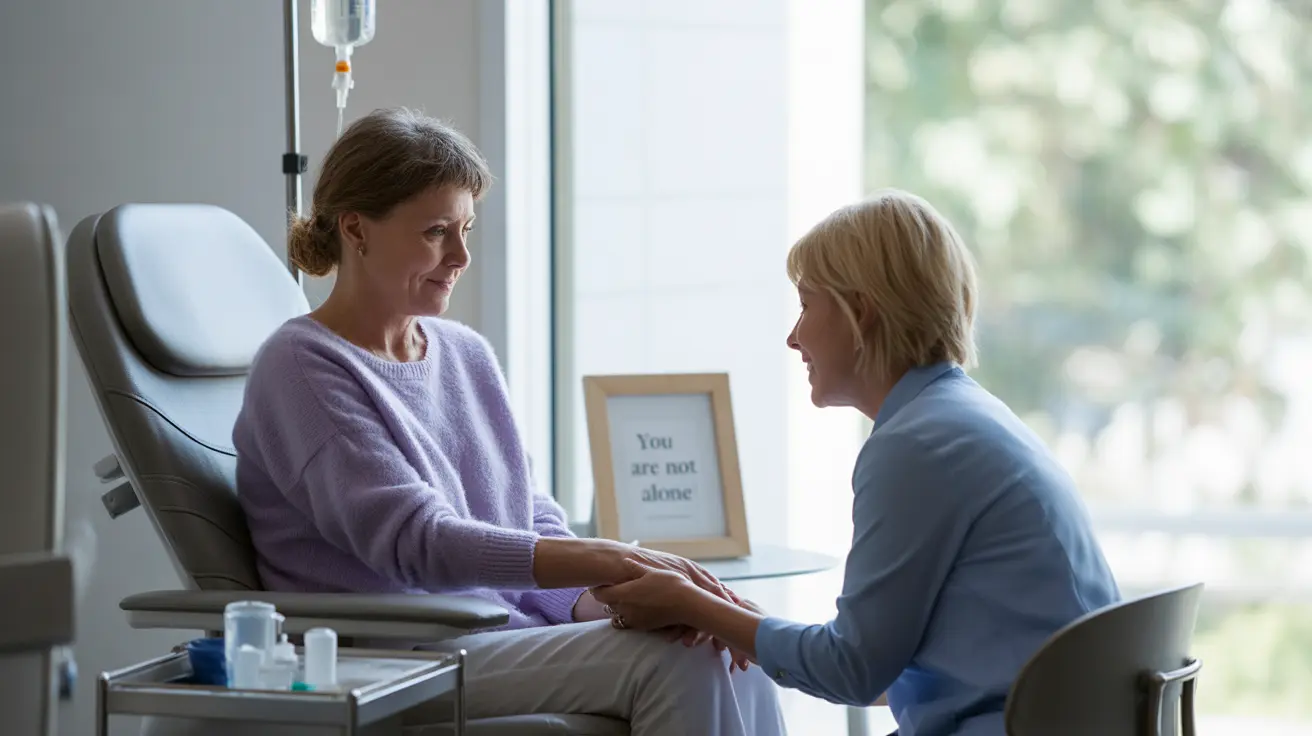Chemotherapy is a powerful cancer treatment that uses specialized drugs to destroy rapidly dividing cancer cells throughout the body. While it's one of the most effective weapons in the fight against cancer, understanding what to expect during treatment can help patients better prepare for their journey and manage potential side effects.
This comprehensive guide explores the essential aspects of chemotherapy treatment, including common side effects, management strategies, and important precautions to take during treatment. Whether you're starting treatment or supporting a loved one, this information will help you navigate the chemotherapy process with confidence.
How Chemotherapy Works
Chemotherapy medications target rapidly dividing cells in the body, which is a characteristic of cancer cells. These drugs can be administered through various methods, including:
- Intravenous (IV) infusion
- Oral medications (pills or liquids)
- Injections
- Topical applications
- Intrathecal chemotherapy (directly into the spinal fluid)
The specific type and combination of drugs used depends on factors such as the type of cancer, its stage, and the patient's overall health condition. Treatment plans are highly individualized to maximize effectiveness while managing potential side effects.
Common Side Effects and Their Duration
Because chemotherapy affects both cancer cells and healthy cells that divide rapidly, several side effects can occur during treatment. Understanding these effects can help patients prepare and seek appropriate support:
Immediate Side Effects (Days to Weeks)
- Nausea and vomiting
- Fatigue
- Hair loss
- Decreased appetite
- Mouth sores
- Changes in taste
Longer-Term Side Effects (Weeks to Months)
- Bone marrow suppression
- Weakened immune system
- Nerve problems (neuropathy)
- Changes in memory and concentration
- Weight changes
Managing Side Effects
Modern medicine offers various strategies and treatments to help manage chemotherapy side effects effectively:
Nausea and Vomiting Management
- Anti-nausea medications
- Small, frequent meals
- Avoiding strong odors
- Staying hydrated
Fatigue Management
- Regular rest periods
- Light exercise when possible
- Proper nutrition
- Adequate sleep hygiene
Hair Loss Solutions
- Scalp cooling treatments
- Wigs and head coverings
- Gentle hair care practices
Infection Prevention During Treatment
A weakened immune system during chemotherapy requires special precautions to prevent infections:
- Regular hand washing
- Avoiding crowds and sick people
- Proper food safety practices
- Maintaining good oral hygiene
- Getting recommended vaccinations (as advised by healthcare team)
Treatment Schedule and Duration
Chemotherapy is typically administered in cycles, with treatment periods followed by rest periods. The schedule depends on:
- Type and stage of cancer
- Types of drugs used
- Patient's response to treatment
- Overall health status
Frequently Asked Questions
What are the most common side effects of chemotherapy and how long do they usually last?
The most common side effects include nausea, fatigue, hair loss, and decreased blood counts. Most side effects begin within days of treatment and typically resolve within weeks to months after completing therapy. However, some effects, like fatigue, may persist for several months.
How can I manage nausea, hair loss, and fatigue caused by chemotherapy?
These side effects can be managed through a combination of medications, lifestyle adjustments, and supportive care. Anti-nausea medications, scalp cooling treatments, and balanced rest and activity can help minimize these effects. Working closely with your healthcare team is essential for developing an effective management plan.
Can chemotherapy cause long-term health problems like nerve damage or infertility?
Yes, some chemotherapy drugs can cause long-term effects, including peripheral neuropathy (nerve damage) and fertility issues. The risk depends on the specific drugs used, dosage, and individual factors. Discussing potential long-term effects with your oncologist before treatment is important.
What precautions should I take to avoid infections during chemotherapy treatment?
Take extra care with hygiene, avoid crowds and sick people, practice food safety, and follow your healthcare team's guidelines for preventing infections. Regular hand washing and maintaining good oral hygiene are essential. Your doctor may recommend specific precautions based on your treatment plan.
How is chemotherapy administered and what factors influence the length and number of treatment cycles?
Chemotherapy can be administered through various routes, including IV, oral, or injection. The length and number of cycles depend on the cancer type, stage, treatment goals, and your body's response to therapy. Your oncologist will create a personalized treatment plan based on these factors.




